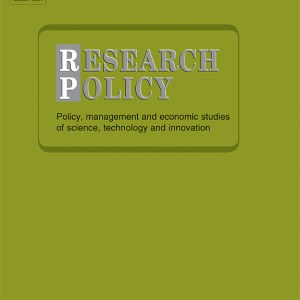
Marino, A., Mudambi, R., Perri, A. and Scalera, V. (2020). Ties that bind: Ethnic inventors in multinational enterprises’ knowledge integration and exploitation Research Policy, 49(9):.
-
Affiliated author
-
Publication year2020
-
JournalResearch Policy
Geographically dispersed reservoirs of knowledge represent significant opportunities for multinational enterprises (MNEs), both in terms of feeding the firm's innovation process, as well as adapting technology to new markets. They face serious challenges in accomplishing these tasks, due to the well-known barriers associated with the transfer of knowledge out of its local context. We argue that ethnic inventors might play a role in alleviating these challenges, by acting as a bridge between their countries of origin (CoO) and the MNE headquarters. Using USPTO data on internationally connected patents granted to US-based MNEs operating in knowledge-intensive industries over the period 1975–2009, our empirical exercise shows that patents involving ethnic inventors from a given CoO are associated with greater integration of knowledge originating from that CoO in the MNE innovation process. Further investigation indicates that this effect is probably limited to knowledge developed within the MNE's network, suggesting that ethnic ties – per se – might not be sufficiently powerful to overcome the joint barriers of national borders and organizational boundaries. Finally, our analysis reveals that ethnic inventors may also be associated with knowledge exploitation in their CoO. This mainly seems to occur in CoOs plagued by market-related institutional voids.